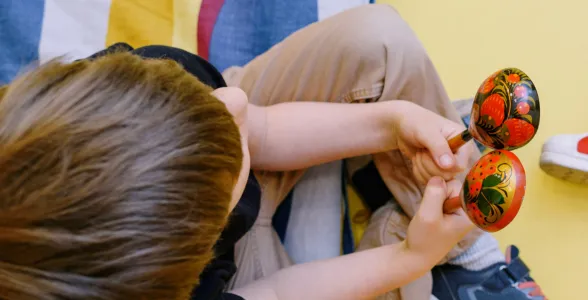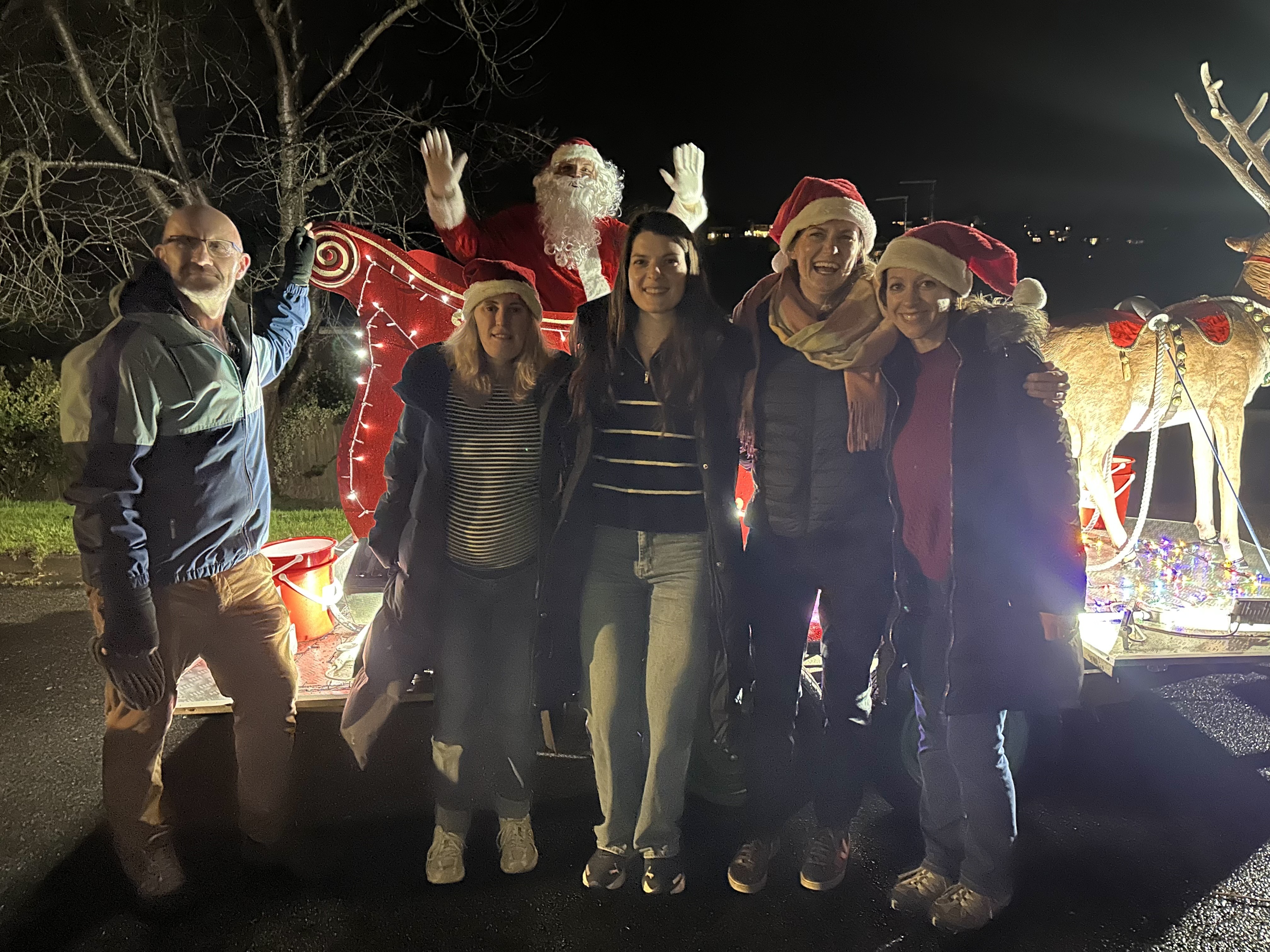
Chiltern Cares: Community Groups
Over the last few months, we’ve been sharing stories, information, behind the scenes content, resources and more as part of our Chiltern Cares: Community campaign. For us, community means supporting people where they feel most comfortable; whether that is attending a local group at a community centre or joining a session at one of our community hubs, or at home. Throughout this campaign, we’ve really enjoyed shining a light on the groups we run in the community.
In case you've missed it, we've done a round-up below, but do make sure you're following us on social media and are subscribed to our newsletter. We've popped all the links at the end of this article. You can find out all about the community groups we run and let us know if you want a group in your area on our Community Groups page.
Circle of Care
We started off by sharing our Circle of Care. Our community services bring music therapy directly to people; at home or in familiar local spaces. Whether through one-to-one sessions or group activities, our Circle of Care ensures everyone we support has the opportunity to experience these five key elements through music:
Connection – fostering a sense of belonging and shared experience
Wellbeing – supporting emotional, physical, and mental health
Relationship Building – nurturing meaningful bonds with others
Empowerment – encouraging confidence, choice, and personal agency
Self-expression – providing a safe space to explore and share identity through sound
Different Groups for Different People
As part of our Chiltern Cares: Community campaign, we’ve been sharing insights into the “how, why, what, and when” of setting up and running community groups. A key aim of this was to pass on the learning and development we’ve gained over the years, especially when it comes to tailoring support for people living with dementia.
One of our most valuable realisations last year was the importance of offering different types of groups for people with the same diagnosis. While it may seem obvious in hindsight, creating a new group revealed a gap we hadn’t fully appreciated before. Our long-running Silver Singers group in Buckinghamshire has been running for 10 years and offers a joyful and inclusive space where older adults with dementia can sing together in a relaxed choir setting. These sessions are welcoming and uplifting, with a strong sense of community and no pressure to perform.
However, we recognised that Silver Singers may not meet the needs of those in the later stages of dementia, where language difficulties and sensitivity to noise or group size can become more pronounced. In response, we developed Safe in Sound, a smaller, more tailored group that offers a richer musical experience with less emphasis on verbal communication. Professional musicians from English Sinfonia, alongside dedicated volunteers, help create a nurturing environment with more space for individual expression through musical improvisation. Carers are also welcomed as active participants, contributing to a more supportive and holistic experience.
Both groups continue to thrive, each meeting different needs within the dementia community. We’re proud of what they’ve become and are hopeful about expanding them to new areas in the future.
Human stories
We shared stories of who had been supported by music therapy and a highlight of one of our stories was Frédéric. Frédéric has been a cherished part of our Sing to Beat Parkinson’s group for the past 18 months, and his story perfectly captures the impact these sessions can have. Dropped off each week by his wife, the group offers Frédéric a space that’s entirely his own—a chance to connect with others, build confidence and find joy through singing. His story reminds us why these groups matter so much. Not just for physical wellbeing but for confidence, community and joy. This is exactly why we do what we do at Chiltern.
Tips for building a Community Group
At Chiltern, we place a strong emphasis on learning and development, not just for individuals but across our whole organisation. This commitment extends to everything we do, including our community groups.
A key part of the campaign was to share what we’ve learned about setting up and running these groups: the “how, why, what, and when” that shapes our approach. We believe this kind of transparency can help others learn from our experiences and, ideally, inspire further innovation and collaboration.
1. Communication Communication is key! If you are going to design a new group, you need to speak to your community and find out what exactly they are looking for. Without listening to these voices, you may not understand the direct needs of the people you are collaborating with. 2. Accessibility The time, date and venue of your group are key to success rate. Does it clash with other things locally that your group members would attend? Does the timing of your group make it tricky for your client group to arrive in time, or could fatigue be an issue if it is too late in the day? Does the venue have step free access? Gather this relevant information and work out the best option.
3. Transport Check out transport links or access to carers who can drive if you are planning on running your group in a more rural location. Do you have a budget to hire a minibus to transport attendees to and from the group? Top tip: if you are having difficulties finding a suitable and accessible venue, why not consider running a digital group instead?
4. Support Support is key to success, and it is crucial to consider how much extra help you require. Think about the minimum and maximum size of your group. It can be tricky to run a group, as well as manage the administration, safeguarding, risk assessments and referral information for those attending. Can you enlist support from local volunteers to manage certain aspects of the group, such as refreshments or signing people in and out? Think about whether you need a co-therapist to work safely too.
5. Time Give yourself plenty of time! Promotion of your group can be the hardest thing, but the longer it runs, the more established it will become, and the more people will hear about it and attend. Try and run your group for a minimum of 6 months to better gauge interest and need from the local community.
Meeting the Team
We wouldn’t be here without our Music Therapists & Community Musicians that deliver the work and so it was important to us to introduce you to some of the team. We shared with you our ‘Community Group Chats’ to have a chat with Jess, Jo, Laura, Josh, Gareth, Eleanor and Rose.
You can check out all the posts mentioned above on our social channels:
Plus, make sure you're subscribed to our newsletter as we will be sharing details of our next campaign over there!
A huge thank you goes to those who took the time to be involved in our Chiltern Cares: Community campaign over the last few months. We hope you have enjoyed this campaign as much as we have and we are really looking forward to the next campaign coming soon…
Support our Work
Help us to provide Music Therapy to the most vulnerable and isolated members of our society
Donate here

.webp)


.png)